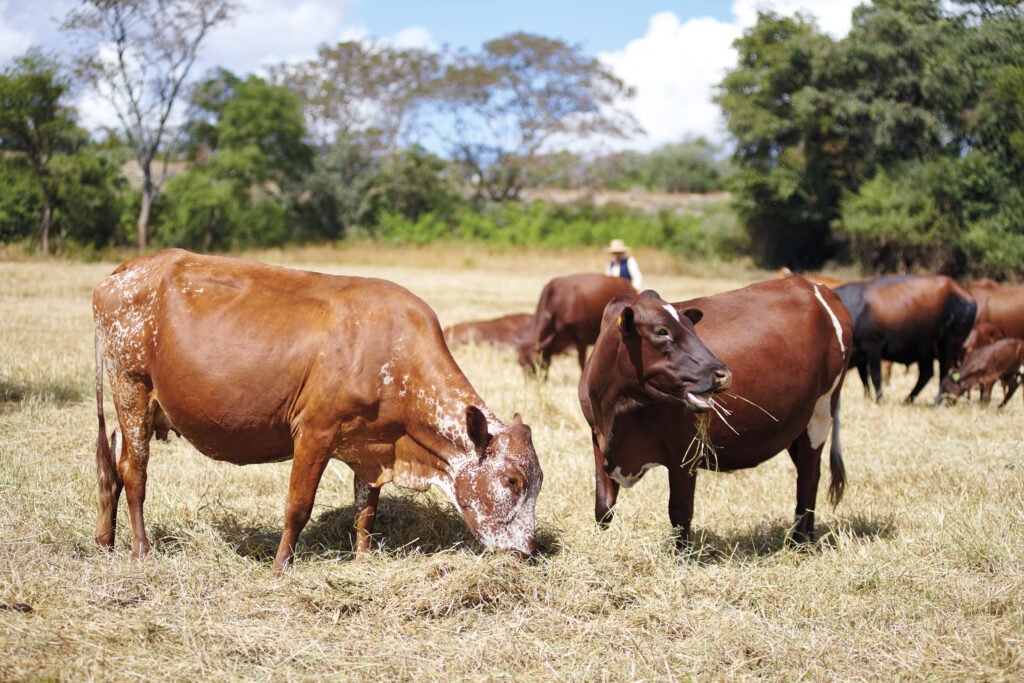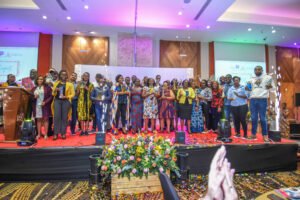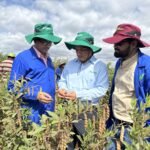By Murimi Gitari, September 12, 2025 A bold new initiative is set to transform livestock farming across Africa, offering hope for climate resilience and improved livelihoods for millions of smallholder farmers. The International Livestock Research Institute (ILRI), backed by the Bezos Earth Fund and the Global Methane Hub, has launched a $3.35 million project to breed cattle that emit less methane while thriving in Africa’s diverse environments.
The three-year initiative, part of the Global Methane Genetics Initiative, will harness cutting-edge science and indigenous knowledge to develop climate-smart cattle that are more productive, heat-tolerant, and environmentally friendly.
“Reducing methane from cattle is one of the most elegant solutions we have to slow climate change,” said Andy Jarvis, Director of the Future of Food at the Bezos Earth Fund. “By identifying naturally low-emitting cattle, we’re locking in climate benefits for generations.”
Livestock in Africa contribute 18% of global methane emissions from animals, with cattle responsible for a staggering 70% in Sub-Saharan Africa. Without intervention, these emissions could triple by 2050. The initiative aims to reverse this trend by tapping into the genetic diversity of local breeds and applying advanced tools to measure and reduce emissions.
Under the leadership of ILRI’s Principal Investigator Raphael Mrode, the ambitious livestock initiative is set to unfold across five African nations with a focus on reducing methane emissions and boosting productivity. One of the first steps involves measuring methane output from 3,000 cows using advanced laser detectors and mobile applications. These tools will allow scientists to gather precise data on emissions and link it to existing records from 9,000 cows, creating a robust foundation for genetic analysis.
In parallel, researchers will delve into the microbial ecosystems of over 1,000 tropical cows. By studying the rumen content—the complex mix of microbes in the stomach—they aim to uncover how these microscopic communities influence both methane production and overall animal performance. This insight will be critical in identifying traits that can be bred into future generations of livestock.
The initiative will also introduce climate-smart cattle into national breeding programs across Kenya, Ethiopia, South Africa, Burkina Faso, and Benin. These animals are specially selected for their ability to thrive in hot climates, require fewer resources, and emit significantly less methane. By integrating them into existing systems, the project hopes to create a ripple effect of sustainable change throughout the continent.
To ensure long-term success, the program will invest in building local capacity. Technicians will be recruited and trained, national breeding centers will be strengthened, and comprehensive rankings of bulls and cows will be published. These rankings will be made accessible to farmers, empowering them to make informed decisions about which animals to breed for both environmental and economic benefits.
“This initiative represents a major step toward a sustainable livestock sector,” said Mrode. “By combining genetics, farmer knowledge, and science, we can reduce emissions and improve rural livelihoods.”
ILRI will coordinate the effort from Nairobi and Addis Ababa, partnering with institutions such as South Africa’s Agricultural Research Council, CIRAD (France), CIRDES (Burkina Faso), and Université d’Abomey-Calavi (Benin). Global breeding leaders like URUS and GENUS will help ensure the new cattle reach farmers through national networks.
Roel Veerkamp of Wageningen University & Research, a key partner, emphasized the global significance:
“This work brings together science, industry, and breeding communities to accelerate genetic improvement for methane efficiency worldwide.”
The expected impact is substantial. Over the next two decades, the initiative aims to cut livestock methane emissions by 12%, with a projected annual reduction of 0.6% at the population level. Improvements in productivity are expected to reduce methane emissions per kilogram of milk by 20 to 25% within just five years. Publicly available genomic data will support widespread, low-cost breeding improvements, and the initiative will expand access to productive, climate-resilient livestock for smallholders across the continent.
This landmark effort marks a turning point in aligning livestock research with climate action. It offers a pathway to permanent, cost-effective methane mitigation while securing the future of African farming communities—proving that sustainability and prosperity can go hand in hand.







